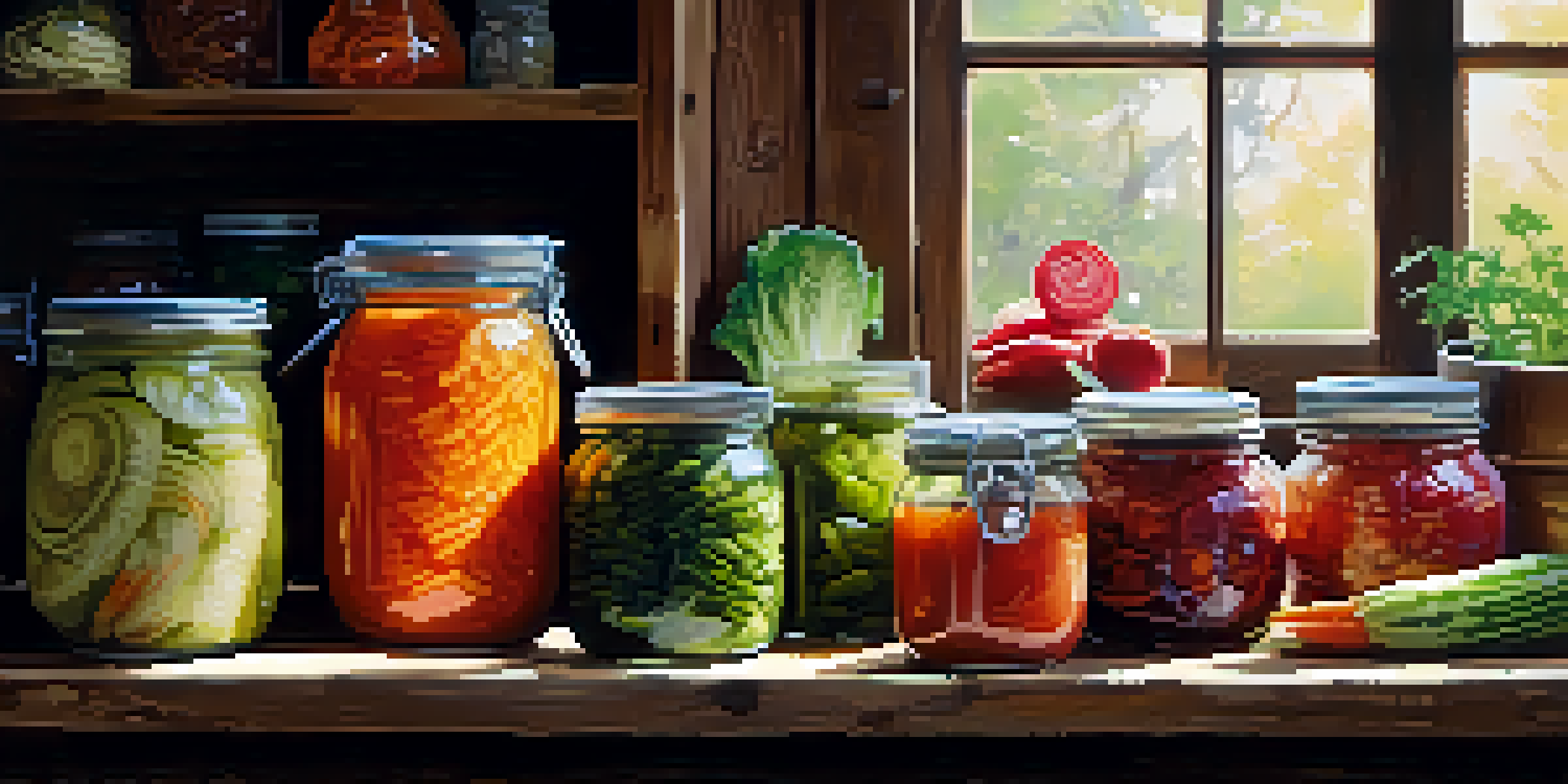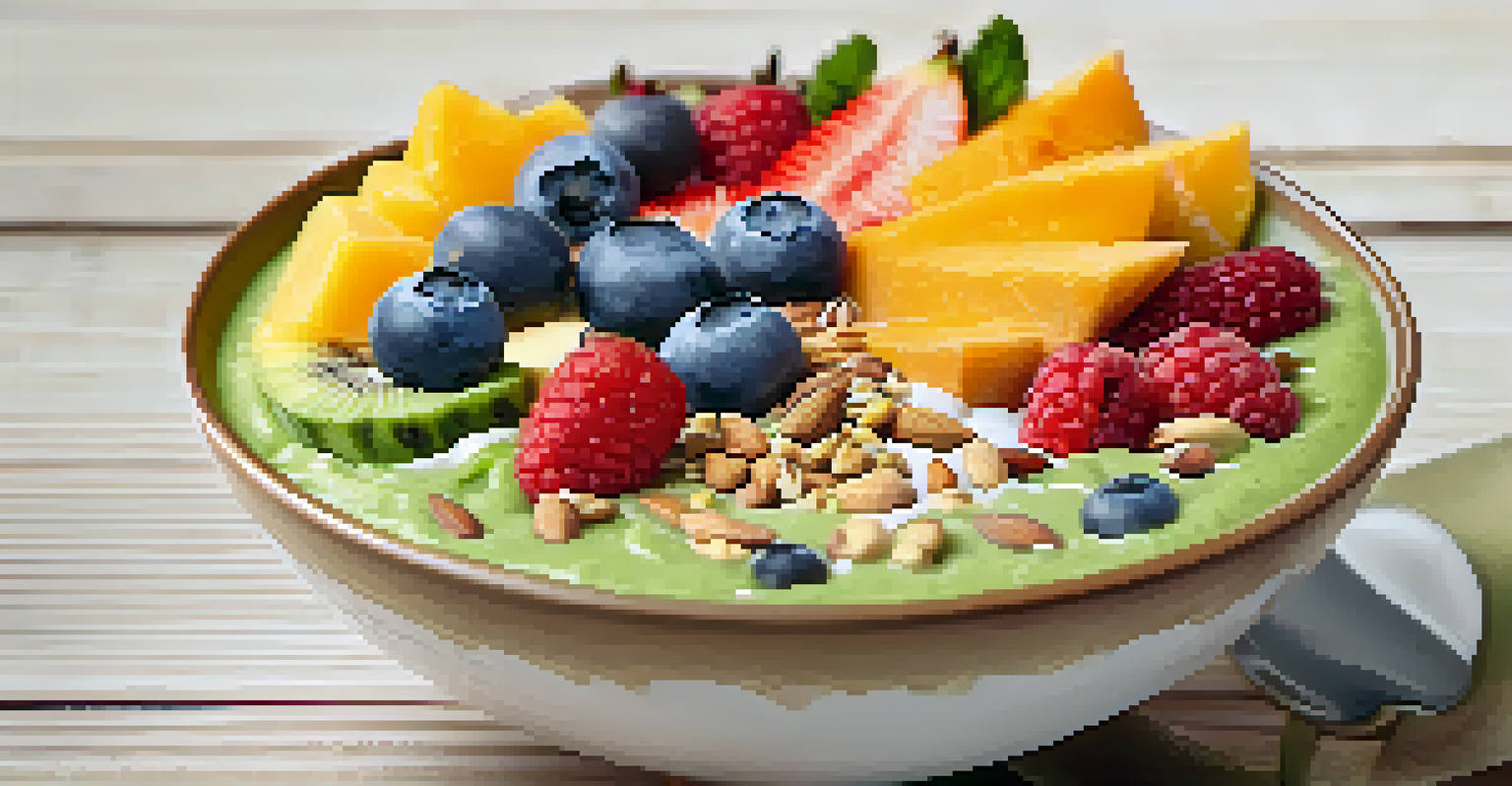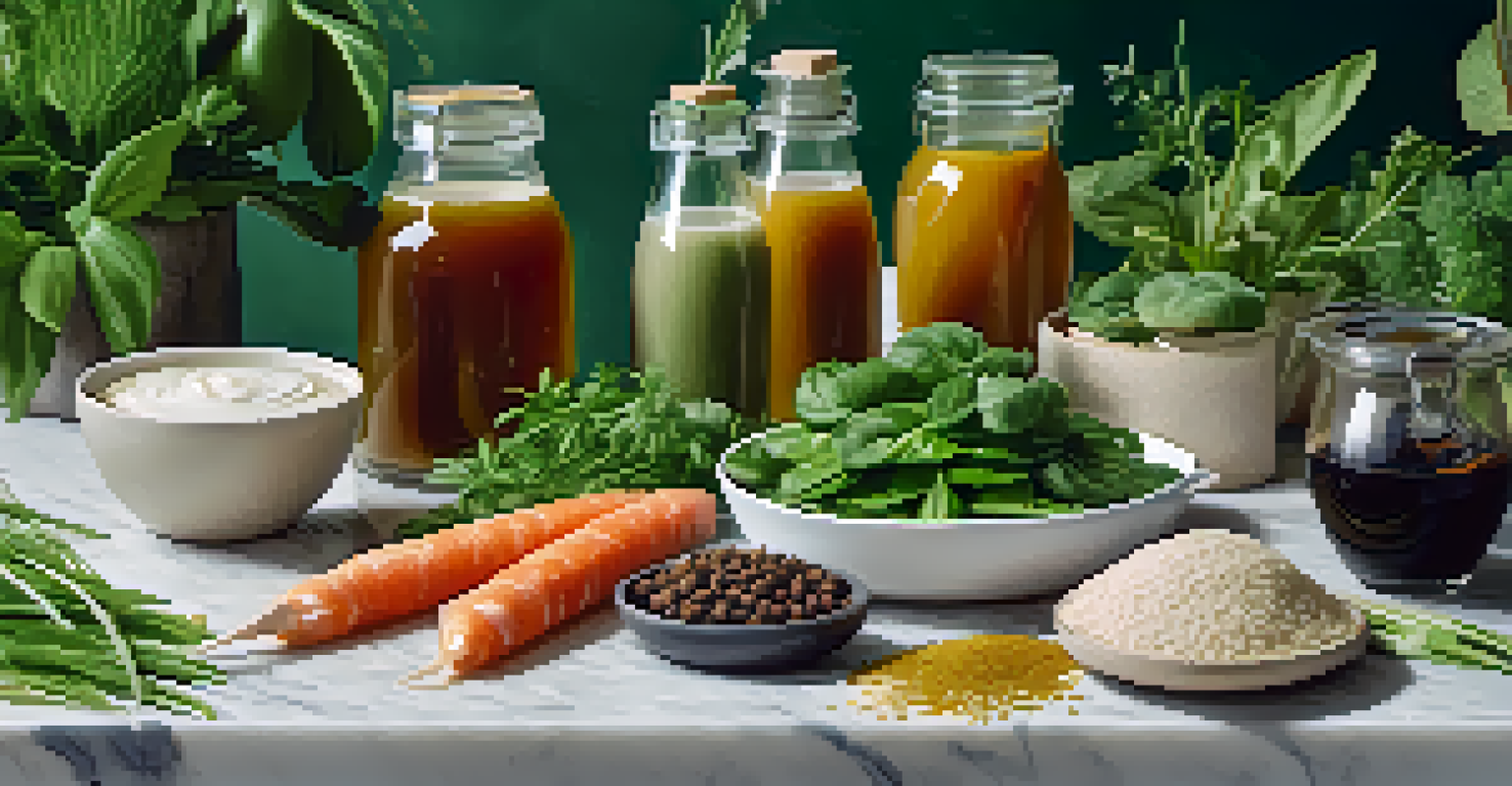The Science Behind Probiotics in a Vegan Diet Explained

What Are Probiotics and How Do They Work?
Probiotics are live microorganisms that can provide health benefits when consumed in adequate amounts. Often referred to as 'good' or 'friendly' bacteria, they play a crucial role in maintaining a healthy gut microbiome. These tiny organisms help balance the bacteria in your digestive system, enhancing digestion and overall health.
Probiotics are like a little army of good bacteria that help keep your gut healthy and happy.
When you consume probiotics, they can help restore the natural balance of your gut flora, especially after disruptions caused by illness or antibiotic use. Think of them as friendly reinforcements for your gut, helping to fend off harmful bacteria and promote a thriving environment for digestion. This is particularly important for vegans, who may need to be more intentional about their gut health.
The benefits of probiotics extend beyond basic digestion; they can also boost your immune system and improve mental health. By supporting a robust gut microbiome, probiotics contribute to better nutrient absorption and can even influence your mood, making them a fantastic addition to a vegan diet.
The Importance of a Vegan Diet for Health
A vegan diet is rich in fruits, vegetables, whole grains, and legumes, all of which provide essential nutrients and fiber. This plant-based approach not only supports overall health but also aligns with ethical and environmental values. However, it’s crucial for vegans to be mindful of their nutrient intake, especially when it comes to gut health.

While a vegan diet is naturally high in fiber, which aids digestion, it may lack certain probiotics found in dairy products. This absence makes it essential for vegans to seek alternative sources of probiotics to maintain a balanced gut flora. Incorporating fermented foods like kimchi, sauerkraut, and miso can help bridge this gap.
Probiotics are vital for gut health
These friendly bacteria help balance gut flora, enhance digestion, and support overall well-being.
In essence, a vegan diet can be incredibly beneficial but requires careful planning to ensure that all nutritional needs are met. By understanding the importance of probiotics, vegans can enhance their diet and promote a healthier gut.
Sources of Probiotics for Vegans
Fortunately, there are plenty of plant-based sources of probiotics that can easily fit into a vegan diet. Fermented foods like tempeh, kombucha, and pickles are excellent choices that not only provide probiotics but also add flavor and variety to meals. These foods can make your meals exciting while boosting your gut health.
Eating a plant-based diet is not only good for your health, but it's also good for the planet and your gut microbiome.
Additionally, many vegan-friendly probiotic supplements are available in health stores. These supplements can be a convenient option if you're not consuming enough fermented foods in your daily diet. Just like any other supplement, it’s wise to consult with a healthcare provider to find the right one for your needs.
Incorporating a variety of these sources regularly can help ensure that you’re getting the beneficial bacteria your gut needs. By being proactive about including these foods in your diet, you're taking a step towards maintaining a healthy digestive system.
How Probiotics Support Gut Health
Probiotics are essential for gut health as they help maintain a balanced microbiome. A diverse and balanced gut flora can enhance digestion, reduce bloating, and improve nutrient absorption. When your digestive system is functioning optimally, you’re more likely to feel energetic and vibrant.
Moreover, probiotics can help alleviate common digestive issues like irritable bowel syndrome (IBS) and constipation, which can be a concern for some vegans. By regulating bowel movements and promoting a healthy gut lining, these friendly bacteria can greatly improve your quality of life.
Vegan diets need alternative probiotics
Vegans should incorporate plant-based sources of probiotics, like fermented foods, to maintain gut health.
In short, probiotics play a vital role in keeping your gut healthy, which in turn supports overall well-being. By prioritizing gut health through probiotics, you’re investing in your long-term health.
The Role of Fiber in a Vegan Diet
Fiber is a key component of any healthy diet, and it’s especially abundant in a vegan diet. It helps to promote regular bowel movements and provides food for your probiotics, allowing them to thrive. Think of fiber as the fuel that keeps your gut bacteria active and happy.
There are two types of fiber: soluble and insoluble. Both types play unique roles in digestion; soluble fiber can help lower cholesterol and stabilize blood sugar, while insoluble fiber adds bulk to your stool, aiding in regularity. Including a variety of fiber sources in your meals can create a well-rounded approach to gut health.
So, while incorporating probiotics is crucial, don’t forget the importance of fiber in your diet. Together, they work synergistically to support optimal digestion and overall health.
Potential Benefits of Probiotics for Vegans
For vegans, the potential benefits of probiotics extend beyond gut health. Research has shown that probiotics may enhance immune function, which is vital for everyone, but particularly for those on plant-based diets who may have different nutritional challenges. A strong immune system can help you stay healthy and resilient.
Additionally, some studies suggest that probiotics might have a positive impact on mental health by influencing the gut-brain axis. This connection between your gut and brain means that supporting your gut health can also benefit your mood and cognitive function—a win-win for anyone, especially those following a vegan lifestyle.
Fiber fuels probiotic effectiveness
A high-fiber vegan diet not only aids digestion but also supports the growth and activity of probiotics.
Ultimately, the inclusion of probiotics in a vegan diet can lead to a holistic approach to health, addressing not just physical well-being but emotional and mental health as well.
How to Incorporate Probiotics into Your Diet
Incorporating probiotics into your vegan diet can be both simple and enjoyable. Start by adding fermented foods to your meals, such as a side of sauerkraut with lunch or a glass of kombucha with dinner. These small additions can significantly impact your gut health over time.
You might also consider starting your day with a smoothie that includes a scoop of vegan probiotic powder, or tossing some miso paste into your soups and dressings. The key is to find ways to make these probiotic-rich foods a regular part of your eating routine.

Remember, consistency is key. By regularly including probiotics in your diet, you can foster a thriving gut environment that contributes to your overall health and well-being.